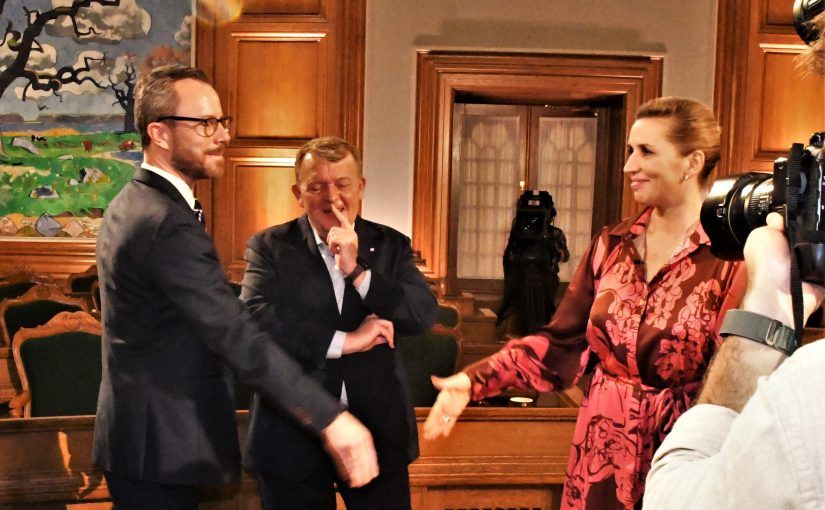It took her a record 42 days, but an accord to form a new government has finally been reached following lengthy negotiations.
Tonight the former PM Mette Frederiksen informed Queen Margrethe that she is ready to form a government … a remarkable one at that!
The majority government-to-be stretches across from Red Bloc (Socialdemokraterne) to Blue Bloc (Venstre), with former PM Lars Løkke Rasmussen’s start-up party Moderaterne also being included.
“These are the three parties who have agreed to come together and assume responsibility,” said Frederiksen following her visit to Amalienborg Palace.
“That so different parties form a government together doesn’t mean we will agree on everything, but we choose to enter into a working group together, because it is imperative for our country.”
READ ALSO: Over five weeks and counting: Still no government for Denmark
Red mist for Red Bloc
Together, the three parties make up 89 of the 90 mandates needed to have a majority, while the four North Atlantic mandates from Greenland and Faroe Islands put them over the top.
Frederiksen said that the platform of the government will be presented tomorrow, while the various ministers will be unveiled on Thursday.
A number of parties left outside the government have already criticised the new constellation of power.
Red Bloc parties Socialistisk Folkeparti (SF), Enhedslisten and Alternativet are among those voicing dissent.
“Denmark doesn’t need a government across the middle. Denmark needs a government that solves the climate and nature crisis, children and youth issues and helps the many who have little. That’s unfortunately not what we will get tomorrow,” said SF head Pia Olsen Dyhr.














